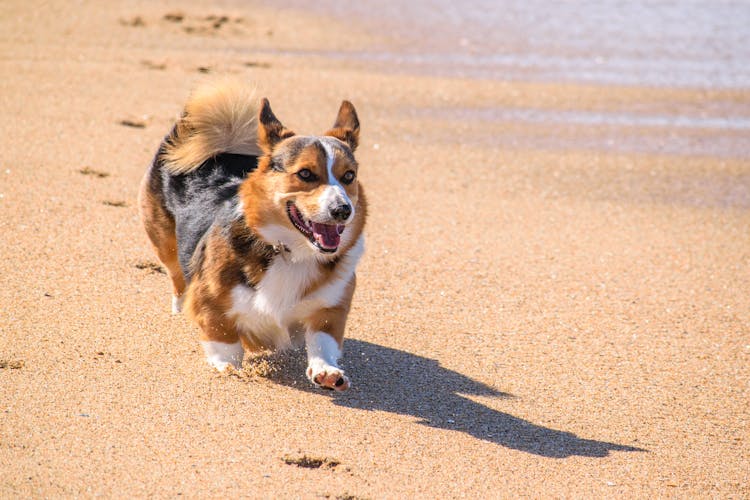All Categories
Featured
Table of Contents
Key Indicators of a Dog Cold
🐾 TLDR Summary- 🐶 Dogs can experience cold symptoms similar to humans.
- 🌡️ Symptoms include sneezing, coughing, and runny noses.
- 📅 Consult a vet for proper diagnosis and treatment.
- 🛡️ Preventive measures are essential in promoting overall canine health.
The common cold in dogs can pose significant discomfort for our furry friends, impacting their overall health and quality of life. Numerous pet parents often overlook symptoms, believing they are just benign occurrences. However, distinct signs can often unveil a cold in dogs. Among the most noticeable symptoms are recurrent sneezes, coughing, runny noses, and watery eyes. These symptoms may seem harmless, yet they often point to an underlying cold virus. Understanding the specific symptoms can help you determine whether your dog is experiencing a simple cold or a more severe condition requiring immediate veterinary attention. Additionally, keeping a watchful eye on your dog's behavior and noting any changes can significantly aid in prompt diagnosis. For a comprehensive understanding of dog cold symptoms, see more at this resource.
Reasons for Canine Cold Symptoms
Dog colds occur mainly due to viruses, and just like in humans, numerous viruses can result in similar symptoms for your pet. Among the notorious viruses identified are rhinovirus, corona, respiratory syncytial virus, influenza, and parainfluenza. While these terms might sound intimidating, they essentially contribute to your dog experiencing cold-like symptoms. Additionally, dogs can also be affected by kennel cough, a highly infectious respiratory disease, which presents itself primarily through a dry, honking cough. This cough can pose serious health risks, especially in puppies and dogs with compromised immunity. Moreover, other factors, such as bacterial infections, parasitic infections, allergies, and even fungal infections, can lead to the unpleasant coughing and sneezing common with canine colds. Remember, a simple sneeze can sometimes mean more than what it appears.
It is crucial for pet owners to recognize these factors and understand how to mitigate these risks effectively. Additionally, after identifying signs of a cold, it is wise to consult with your veterinarian promptly. They can conduct necessary tests that may include cultures or blood work to ensure that your pet receives the right treatment. It's essential to differentiate between a simple cold and more severe respiratory conditions. For notable symptoms specifically tailored for dog colds, you might want to read further here.
Caring for Your Dog's Cold
When your beloved canine companion starts exhibiting symptoms, your first step should be to contact your veterinarian. Prompt treatment is key to ensuring your dog's speedy recovery. Generally, a veterinarian will carry out a physical examination and may suggest diagnostic tests to rule out more severe conditions. Rest is one of the most crucial elements in treating a dog cold. Ensuring your pet has a warm and comfortable environment permits their body to recuperate effectively. Your veterinarian may also prescribe antibiotics if there are any secondary bacterial infections. Additionally, cough suppressants might be advisable to ease discomfort and help your dog breathe more easily. Adequate hydration is essential during recovery, so make sure your dog has access to fresh water at all times. In case of nasal congestion, you might consider specific nose relief products available, like HomeoPet Nose Relief to assist with their symptoms. These gentle and safe remedies can make a noticeable difference in decongesting and enhancing their comfort during this time.
It's important to monitor your dog's condition regularly during the treatment phase. If they seem to worsen or show any new symptoms, don't hesitate to recheck with your veterinarian. Ultimately, with the right care and medical attention, recovering from a cold can be a smooth process. Pet owners must stay proactive during this period and ensure their dog's health by any means necessary.
How to Avoid Dog Colds
Prevention is always better than cure when it comes to canine health. Implementing effective hygiene practices is essential for keeping your dog safe from colds. It is wise to maintain cleanliness in areas where your dog spends time, especially if they come into contact with other dogs regularly. Avoiding crowded areas or environments with many pets can also significantly reduce risk. Moreover, maintaining a robust vaccination regimen helps protect your dog against severe respiratory diseases. Vaccinations for kennel cough, canine influenza, and other respiratory conditions should be part of your dog's health maintenance. Keeping your pup's immune system strong, through proper nutrition, regular exercise, and adequate rest, goes a long way in prevention as well. Offering products designed specifically to support healthy respiratory function can be an excellent decision as well. For example, utilizing Cold Symptom Support for Dogs can play a vital role in safeguarding against potential colds and other ailments.
Closing Insights on Dog Cold Prevention
In conclusion, understanding the myriad symptoms, causes, and treatments for dog colds is critical for every pet owner. Proactive measures, constant vigilance, and timely consultations with your veterinarian can help ensure that your canine friend remains healthy and happy. With the right approach, your dog can make a full recovery from a cold and continue enjoying life to the fullest.
Can dogs get colds from humans?
How long does a dog cold last?

Table of Contents
Latest Posts
Harmony for Health: Diving into Sound Therapy Practices
The Digital Detox Paradox: Why Unplugging Can Harm Your Mental Health
Up Up and Away Your Guide to Hot Air Balloon Adventures
More
Latest Posts
Harmony for Health: Diving into Sound Therapy Practices
The Digital Detox Paradox: Why Unplugging Can Harm Your Mental Health
Up Up and Away Your Guide to Hot Air Balloon Adventures